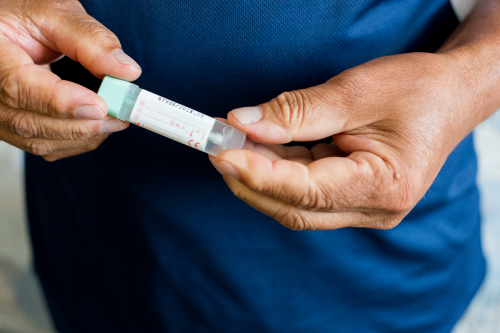Whanganui pilot assesses wider use of FIT

Stage one of a pilot is underway at Whanganui Hospital to find out whether the Faecal Immunochemical Test (FIT) can be used more widely to determine which symptomatic patients would benefit from further investigation.
Pilot Coordinator Cathy Whiteside says the FIT, which detects traces of blood in a stool sample, is the same test used for routine bowel screening but the pilot is exploring using it in a different way.
‘We’re looking at whether the FIT can be used to identify patients most likely to have serious bowel disease and prioritise them for colonoscopy.’
Cathy says this would enable clinicians to refer patients who are most likely to benefit from a colonoscopy and exclude others from having the invasive procedure where there is little likelihood of cancer or serious bowel disease being found. It will also help to better manage limited colonoscopy resources.
The New Zealand pilot follows promising results overseas where the FIT was used to triage symptomatic patients.
‘The aim of the initial Whanganui pilot is to check that we have the process right for NZ. We chose Whanganui because it is a small DHB with the required resources,’ says Cathy.
This first stage of the pilot will investigate the value of using the FIT as a triaging tool and determine what thresholds of blood detected would be most reliable in indicating possible bowel cancer or serious bowel pathology
The pilot will run from November 2020 and finish when enough tests and colonoscopies have been performed to have confidence in the threshold levels for excluding serious bowel pathology . It the FIT is found to be an effective tool in the New Zealand context, it will be offered to all DHBs.

